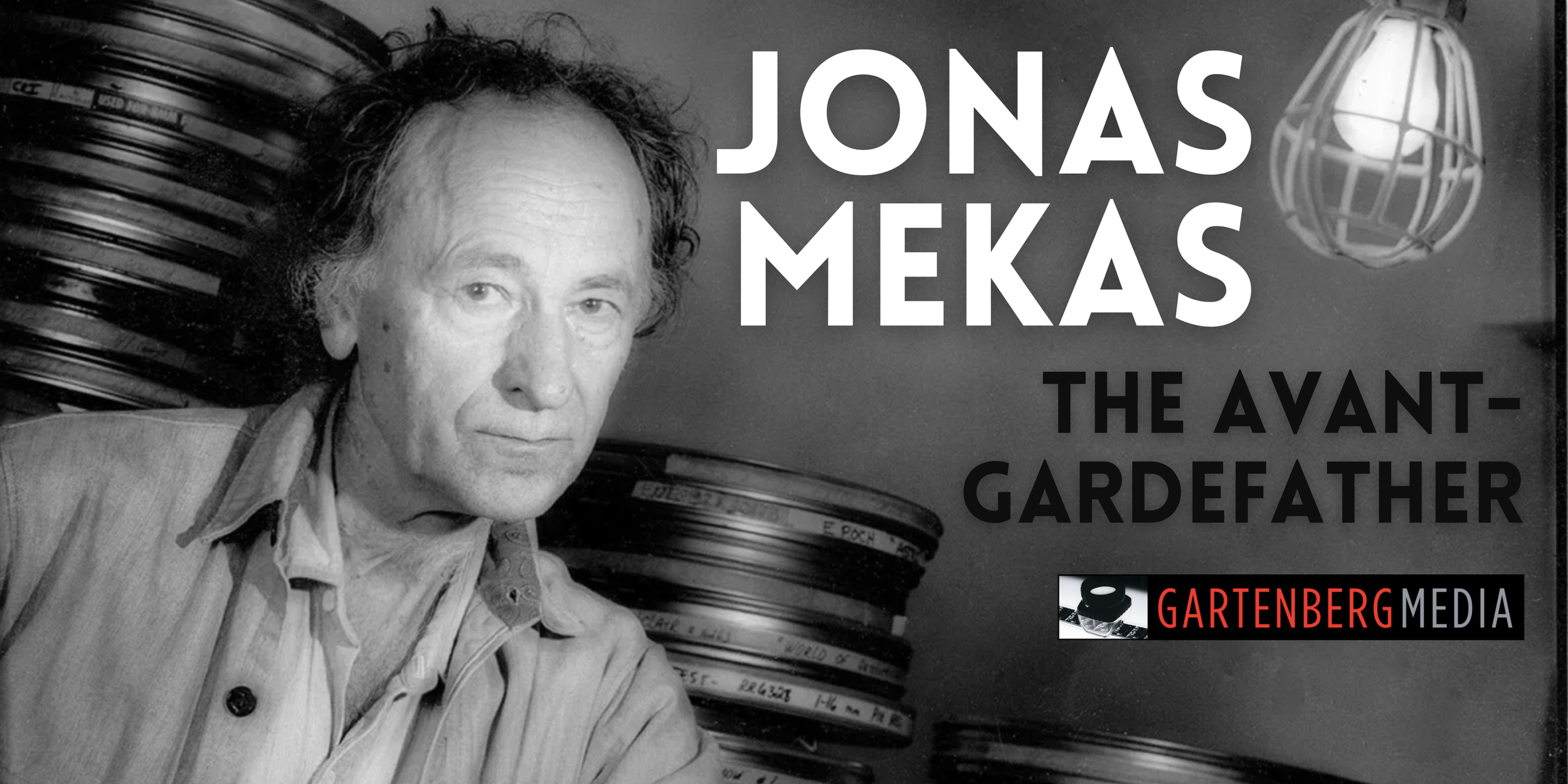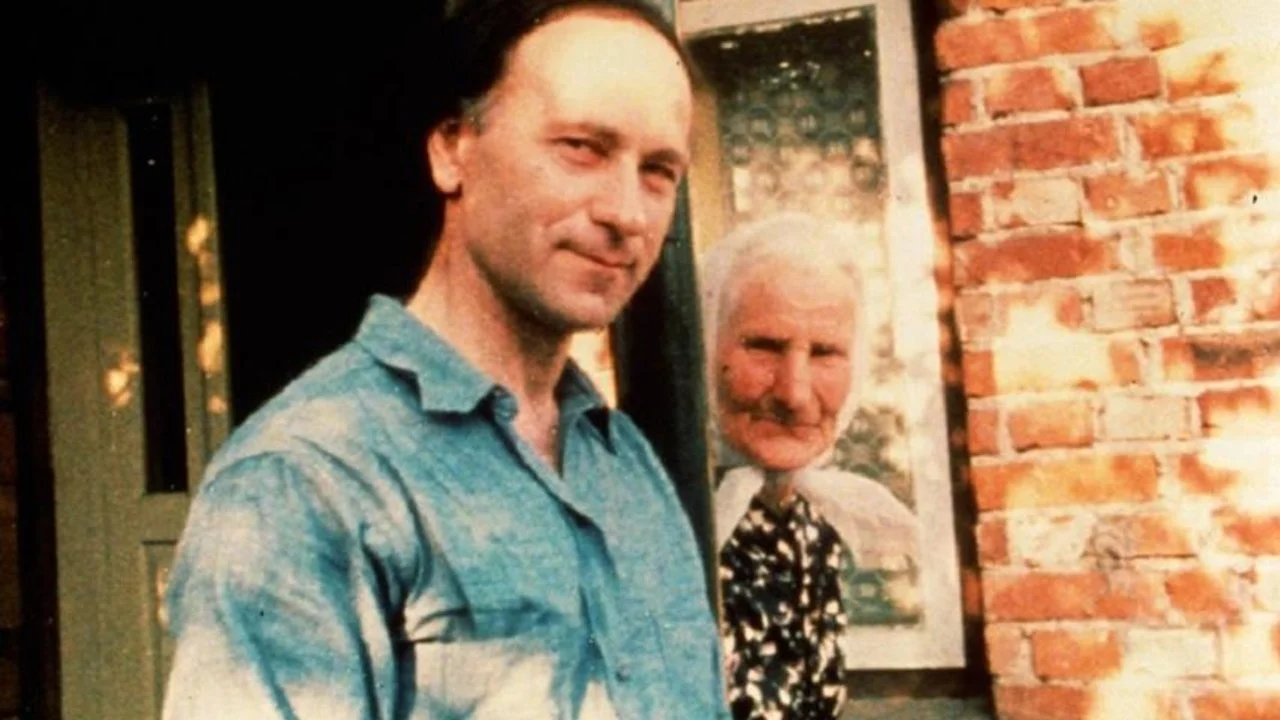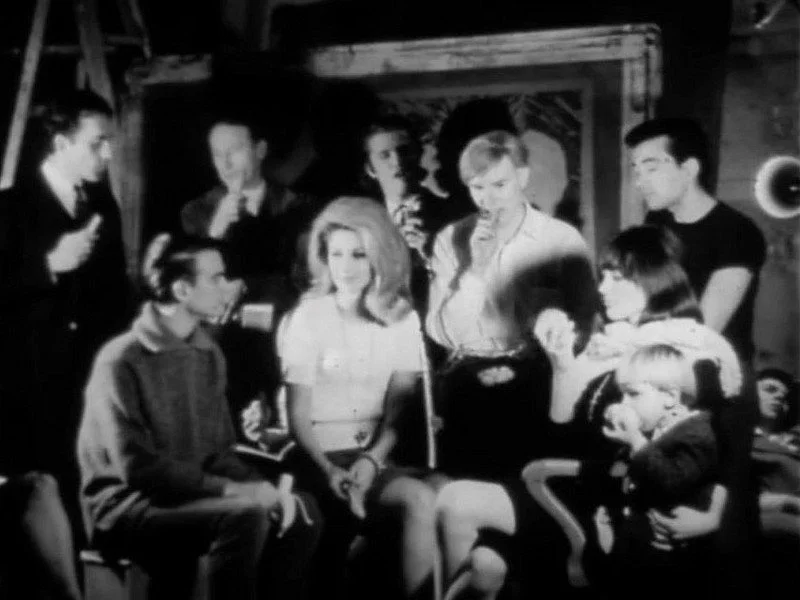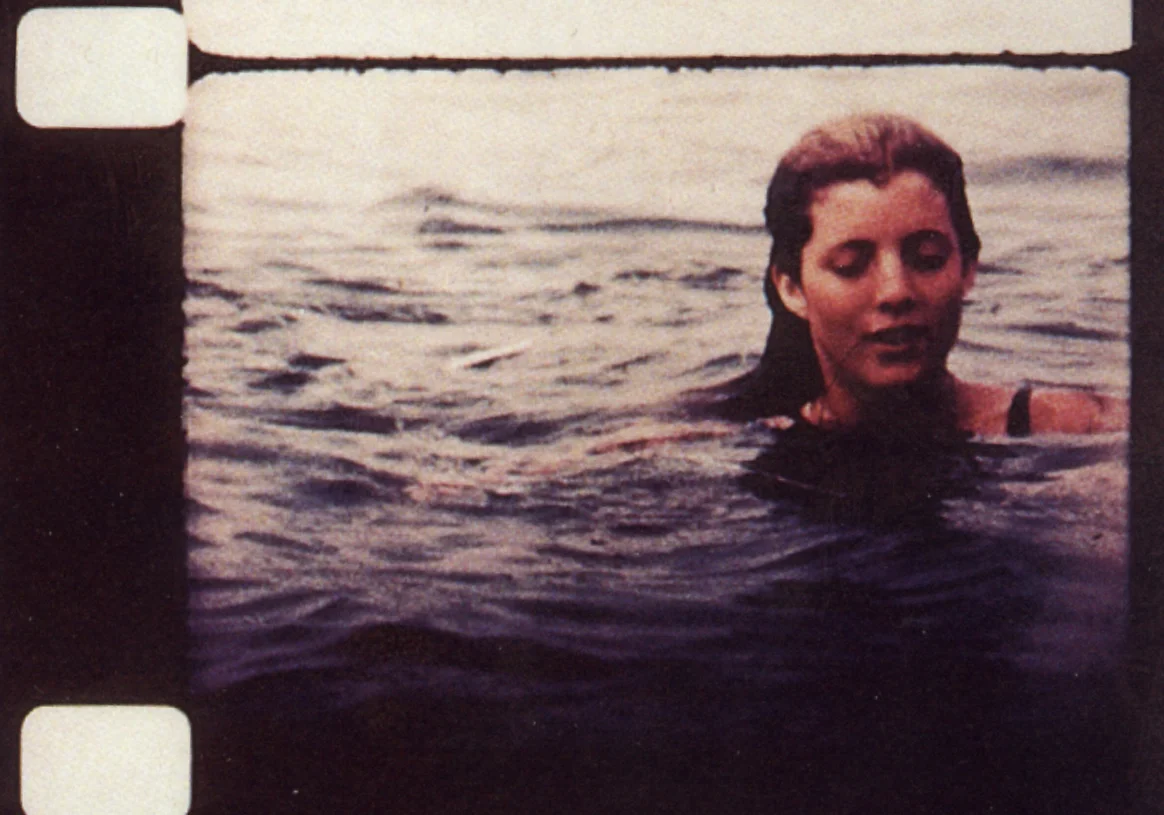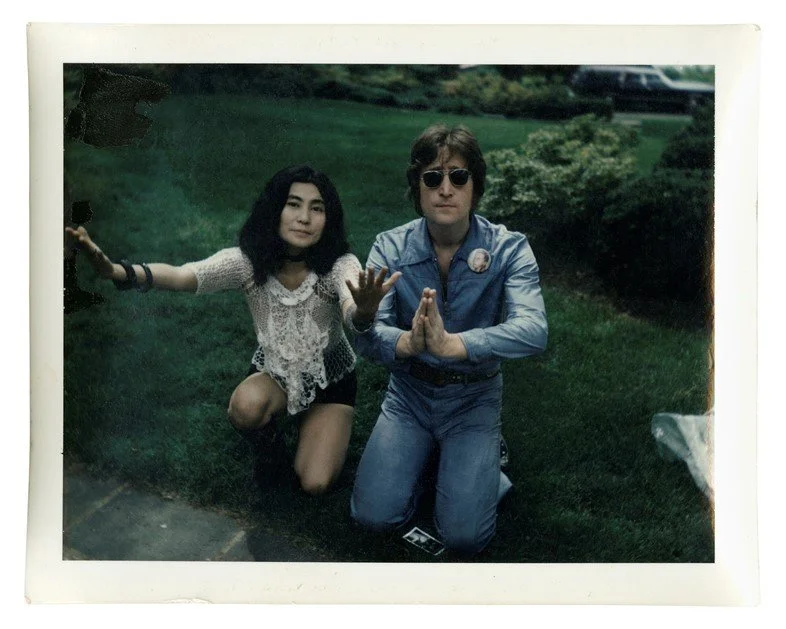Jonas Mekas: The Avant-Gardefather
/We do not want rosy films. We want them the color of blood. —Jonas Mekas
GME is proud to distribute films by Jonas Mekas, widely regarded as the Godfather of American Avant-Garde Cinema, to universities in North America as Digital Site Licenses (DSLs).
Jonas Mekas was born in Lithuania in 1922. In 1944, Jonas and his brother Adolfas were taken by the Nazis to a forced labor camp in Germany. After World War II, he studied philosophy at the University of Mainz. By the end of 1949, the UN Refugee Organization brought both brothers to New York, where they settled in Williamsburg, Brooklyn.
Immediately acquiring a 16mm Bolex camera, Jonas began filming his surrounding environment and friends, which he later assembled into films primarily centered on the dual themes of exile and assimilation. Jonas developed his diary style of filmmaking while simultaneously becoming immersed as a magazine editor and publisher (Film Culture), film critic (Village Voice), distributor (The Film-Makers’ Cooperative), programmer (The Film-Makers' Cinematheque), and archivist (Anthology Film Archives). In short, Mekas soon became the most significant force behind the evolution and promotion of the American Avant-Garde film movement, earning the nickname “The Godfather of American Avant-Garde Cinema.”
Mekas’ enthusiasm for his contemporaries and his modesty and reticence about his own achievements as a film-maker contributed to an underestimation of his stature in the sixties and seventies... Congruent with the magnitude of his recording of the pulse of the New York art world for forty years is his slow revelation of the reflective self. By the nineties it was apparent that Mekas was one of the central filmmakers of the American avant-garde. —P. Adams Sitney, Visionary Film
Features
GME currently distributes seven features by Jonas Mekas as Digital Site Licenses to the North American university market, in addition to a feature by Mekas’ brother, Adolfas; a feature by Adolfas’ wife (and Jonas’ sister-in-law), Pola Chapelle; and a feature Adolfas and Pola made together.
Filmed from 1964 to 1969, WALDEN is Jonas Mekas’ first completed diary film, composed of moments, people, and events captured with his Bolex 16mm camera. At once intimate and epic in scope, WALDEN vacillates between the New York avant-garde scene of the mid-to-late 1960s (with Mekas’ lens immortalizing such notable friends and colleagues as Andy Warhol, John Lennon, Yoko Ono, and The Velvet Underground) and quotidian moments from Mekas’ family and day-to-day life.
AS I WAS MOVING AHEAD OCCASIONALLY I SAW BRIEF GLIMPSES OF BEAUTY (US, 2000)
AS I WAS MOVING AHEAD OCCASIONALLY I SAW BRIEF GLIMPSES OF BEAUTY sees Jonas Mekas reconstruct his life through various home movies filmed over the course of three decades. Footage includes picnics and birthday parties as well as significant life events, such as Mekas’ children taking their first steps. Throughout, Mekas offers his own commentary via voiceover about what the viewer is seeing.
In LOST LOST LOST, Jonas Mekas compiles fourteen years of filming, starting from his arrival in America as a political refugee through the New York counterculture of the 1950s and ‘60s.
REMINISCENCES OF A JOURNEY TO LITHUANIA (US, 1972)
“Jonas and Adolfas Mekas arrived in America in 1949 as displaced persons, former prisoners of German labor camps, exiled from their native Lithuanian farming village. Wanted by the Soviet police, they had been forced to leave home years earlier, not to return for 27 years. REMINISCENCES OF A JOURNEY TO LITHUANIA is the compelling document of a divided family and their long-delayed reunion.” —Re:Voir Video
Jonas Mekas’ THE BRIG is a filmic rendering of the off-Broadway play of the same name, written by Kenneth H. Brown, which chronicles the abuses and indignities suffered by inmates at a Marine Corps prison. Brown wrote the play based on his own experiences as a U.S. Marine who spent 30 days in a brig for being absent without leave while serving with the Third Marines at Camp Fuji, Japan, in the 1950s.
HE STANDS IN A DESERT COUNTING THE SECONDS OF HIS LIFE (US, 1969—1985)
The Diary Film was a significant form that has run throughout the history of American independent cinema, and whose major practitioner has been filmmaker Jonas Mekas.
Shot between 1969 and 1985, HE STANDS IN A DESERT COUNTING THE SECONDS OF HIS LIFE consists of 124 brief sketches, each half-a-minute to about two minutes long. According to Mekas, these are “portraits of people I have spent time with, places, seasons of the year, weather (storms, snow, blizzards, etc...), many of my film-maker friends, streets and parks of New York, brief escape[s] in nature, out of town; nothing spectacular, unimportant celebrations of life that has gone, by now, and remains only as a record in these personal, brief sketches.”
"GUNS OF THE TREES deals with the thoughts, feelings, and anguished strivings of my generation, faced with the moral perplexity of our times. Conceived as an episodic, horizontal film, there is no apparent direct story connection between one scene and the next. The scenes act like pieces of a larger, timed, emotional mosaic. Where the direct word, or the direct image, fails — when we come to more essential things — the indirectness of the poet will seize the essence and the truth." —Jonas Mekas
HALLELUJAH THE HILLS (US, 1963, Adolfas Mekas)
HALLELUJAH THE HILLS, Adolfas Mekas’ debut feature film, was selected for the first New York Film Festival in 1963, was the hit of the 'Out-of-Competition' section at the Cannes Film Festival, and won the Silver Sail at Locarno. Referencing Charlie Chaplin, D. W. Griffith, and Maya Deren, Mekas' film is a work that bears witness to his knowledge and love of cinema, as well as the immense freedom to be found in the films of the New American Cinema.
GOING HOME (US, 1972, Adolfas Mekas and Pola Chapelle)
In 1971, after a nearly 30-year absence, Adolfas and his brother Jonas Mekas returned to their birthplace in Lithuania. They had left Lithuania as young men, destined for a German labor camp. After they came home, Adolfas with his wife, the singer Pola Chapelle, “sang and walked across golden fields and feasted at crowded tables with family and friends. There are flowers for the dead and for the living in this film; it is full of flowers and songs.” —The Film-Makers’ Cooperative catalogue
JOURNEY TO LITHUANIA (US, 1971, Pola Chapelle)
During their trip back to Lithuania, Jonas Mekas made REMINISCENES OF A JOURNEY TO LITHUANIA, his brother Adolfas Mekas made GOING HOME in collaboration with his wife Pola Chapelle, and Chapelle herself made JOURNEY TO LITHUANIA, which both Jonas and Adolfas said was the best of these three films.
Shorts
GME currently distributes five short films by Jonas Mekas as Digital Site Licenses to the North American university market.
AWARD PRESENTATION TO ANDY WARHOL (US, 1964)
When Andy Warhol refused to appear in public to accept the 1964 Film Culture magazines annual Independent Film Award, Jonas Mekas made this mock “documentary” of Warhol and a group of his superstars at the Factory. They are presented a basket of fruit which they then consume in slow motion.
THIS SIDE OF PARADISE (US, 1999)
“I had the fortune to spend some time, mostly during the summers, with Jackie Kennedy's and her sister Lee Radziwill's families and children. Cinema was an integral, inseparable, as a matter of fact, a key part of our friendship.” —Jonas Mekas
HAPPY BIRTHDAY TO JOHN (US, 1995)
"On October 9th, 1972, half of the music world gathered in Syracuse, N.Y., to celebrate the opening of John Lennon/Yoko Ono Fluxus show, designed by George Maciunas. [The] same day, a smaller group gathered in a local hotel room to celebrate John's birthday." —Jonas Mekas
ZEFIRO TORNA OR SCENES FROM THE LIFE OF GEORGE MACIUNAS (US, 1992)
“A tribute from one Lithuanian expatriate to another, ZEFIRO TORNA is Jonas Mekas at his most heartfelt. Comprised of diary footage of Maciunas from the mid-50s until his tragically early passing in the mid-70s, this early-90s production is a beautiful portrait of a lost friend and living spirit.” —Anthology Film Archives
SCENES FROM THE LIFE OF ANDY WARHOL: FRIENDSHIPS AND INTERSECTIONS (US, 1990)
In SCENES FROM THE LIFE OF ANDY WARHOL: FRIENDSHIPS AND INTERSECTIONS, Jonas Mekas continues in his tradition of creating rapid-fire diary films, chronicling not only Andy Warhol, but also the social and cultural excitement that swirled around him, throbbing to a hypnotic Velvet Underground beat. The film features a cast of countercultural icons, including Allen Ginsberg and John Lennon.
To explore all of the titles GME currently distributes as DSLs, visit our Streamline Home Page. For inquires related to DSL, DVD, and Blu-Ray rentals, please visit our ordering info page.



